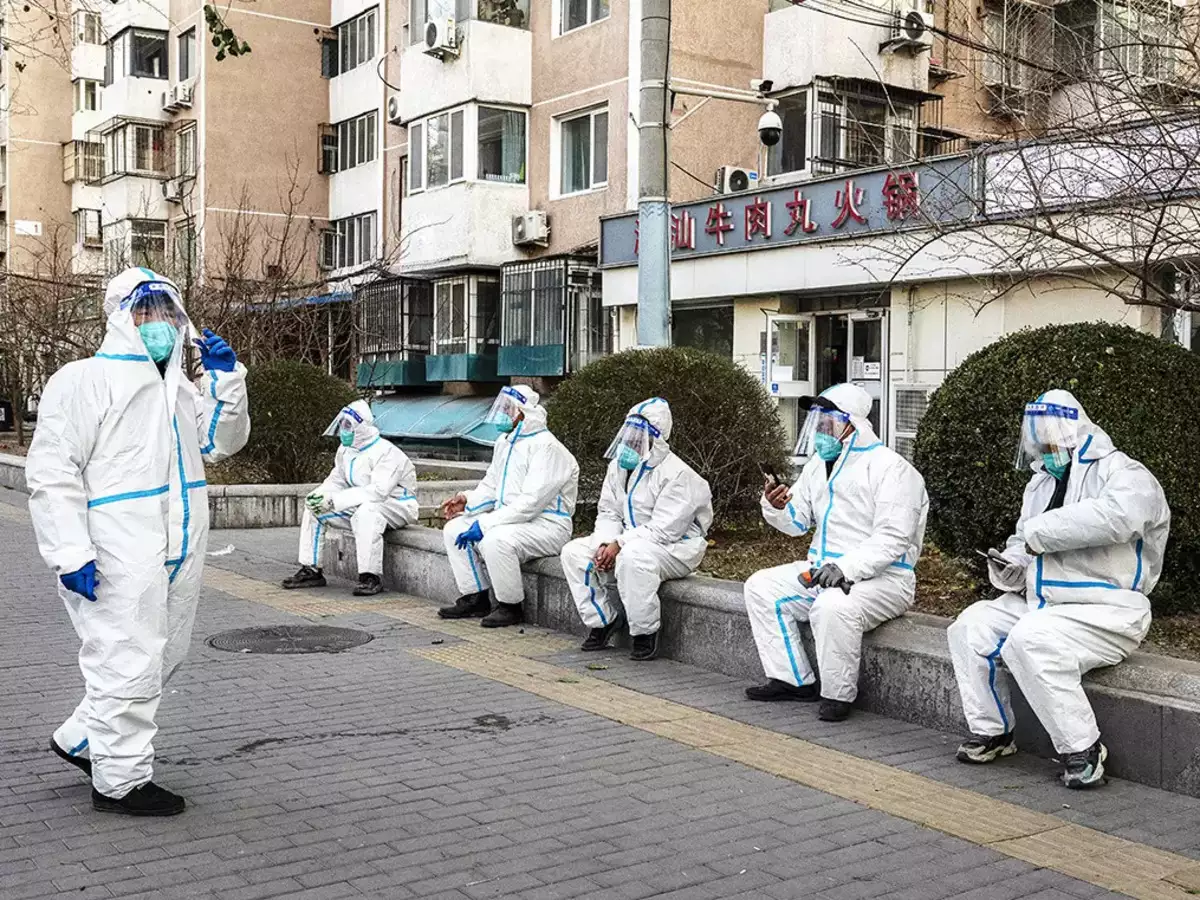With China throwing open its borders as an end to its ‘zero-Covid’ policy ahead of the Chinese new year on 22 January, satellite images of piles of bodies at crematoriums and long queues of vehicles carrying corpses are going viral.
Satellite imagery shared by Damien Symon, a geospatial intelligence researcher at the Intel Lab, shows long queues of vehicles waiting outside crematoriums. This is despite the fact that China has officially reported only two new deaths due to Covid in the mainland on 7 January, along with three deaths a day earlier.
The official all-time death toll in China, as reported to the World Health Organization (WHO) stands at 32, 792.
It’s not just larger cities of Beijing, Shanghai and Guangzhou that are affected, families and citizens of the deceased in second, third and fourth-tier cities revealed that local hospitals and crematoriums are also overcrowded according to a report Voice of America.
China’s neighbouring countries are also worried about the escalating situation. The Korean Disease Control and Prevention Agency data obtained by The Washington Post shows a 23.2 per cent infection rate for short-term visitors from China to Korea from 2 to 6 January.
The data from the Taiwan Centers for Disease Control shows that from 1 to 5 January, one in five travellers from China tested positive for Covid-19.
A Bloomberg report paints the scene inside a Longhua funeral home in Shanghai — hours of waiting, five to 10-minute slots to mourn victims and fighting for space in a cramped room with bodies laying on stretchers zipped up in yellow body bags.
“The whole system is paralyzed right now,” one Longhua employee told Bloomberg.
As the country grapples with new Covid infections, Insider reported that the demand for funeral services is so high that people are queuing outside funeral homes to sell their spots.
Graphic videos, allegedly of families in China cremating the bodies of their loved ones in the streets have surfaced online.
Exact Covid numbers still a mystery
WHO has accused China of under-reporting the cases of Covid in the country.
“We continue to ask China for more rapid, regular, reliable data on hospitalizations and deaths, as well as more comprehensive, real-time viral sequencing,” WHO director-general Tedros Adhanom Ghebreyesus said at a media briefing in Geneva on 4 January.
Eric Feigl-Ding, a US-based epidemiologist and health economist, highlights the long lines at crematoriums where people are forced to carry the bodies of their relatives and friends for long hours.

